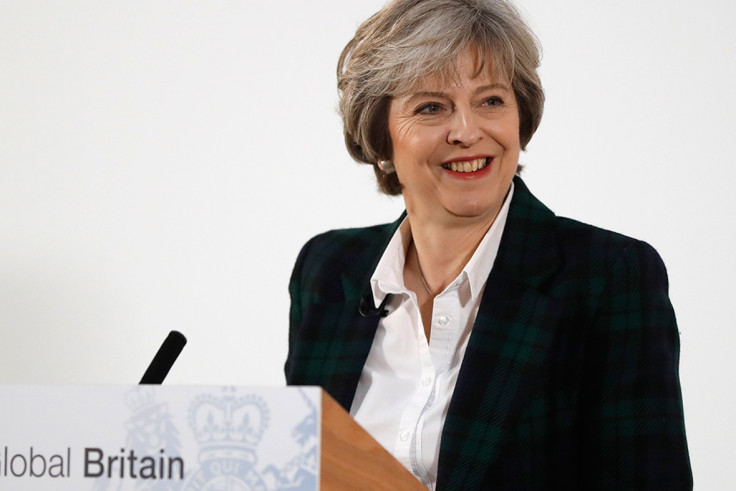Theresa May's Brexit speech: What has the business world made of it?
Industry bodies and lobby groups welcome level of detail, but cautious over impact of leaving single market.
Theresa May's Brexit speech was met with a lukewarm and cautious response by the business community, as lobby groups and industry bodies digested the government's decision to leave the single market.
In her speech, the PM stated Britain will leave the single market but pursue a "bold and ambitious" Free Trade Agreement with the European Union.
"This agreement should allow for the freest possible trade in goods and services between Britain and the EU's member states," May said.
"It should give British companies the maximum freedom to trade with and operate within European markets – and let European businesses do the same in Britain. But I want to be clear: what I am proposing cannot mean membership of the single market."
Carolyn Fairbairn, the director general of the Confederation of British Industry, said the PM's speech has changed the landscape.
"Ruling out membership of the single market has reduced options for maintaining a barrier-free trading relationship between the UK and the EU," she said.
"But businesses will welcome the greater clarity and the ambition to create a more prosperous, open and global Britain, with the freest possible trade between the UK and the EU."
While a number of firms will be disappointed with May's decision to leave the Single Market, ensuring Britain retained a free trade deal is likely to become imperative for most UK businesses.
"Business leaders will be heartened by the PM's strong argument for the value of free trade, an argument currently being made by too few global leaders," Allie Renison, the head of Europe and trade policy at the Institute of Directors, said.
"From the point of view of business, getting a broad-ranging free trade deal would be preferable to falling back on World Trade Organisation rules."
However, Renison welcomed the "level of detail" provided by May, adding achieving an orderly and smooth exit was of paramount importance for the relationship between Britain and the EU.
"We would urge the EU to match the government's approach in taking a long-term, big-picture view about the need for co-operation and partnership in future," she said.
Fairbairn echoed those sentiments, adding British businesses were committed to ensure the process was successful, but the government would have to deliver its plan.

"The pressure is now on to deliver these objectives and achieve a smooth and orderly exit," she explained.
"Businesses want to make a success of Brexit but will be concerned about falling back on damaging WTO rules."
Meanwhile Adam Marshall, the director general of the British Chamber of Commerce, indicated the outcome of the negotiations with the EU was a lot more important than May's stated goals.
"While businesses now have a clearer sense of the prime minister's top-line priorities, they will come away from her speech knowing little more about the likely outcome of the Brexit negotiations than they did yesterday," he explained.
"The simple fact is that businesses all across the UK are carrying on. Directly affected companies are being pragmatic, and are preparing for a range of possible outcomes."
Mike Cherry, the national chairman of the Federation of Small Businesses, said UK firms will be relieved the Prime Minister highlighted the need for a transition in the lead up to leaving the bloc.
While the period will stretch over two years, rather than the five some demanded, Cherry said it would minimise the risk of Britain facing a "cliff-edge" scenario.
"One in five FSB members export. This could be doubled with the right tailored small business support from the Department for International Trade along with new free trade agreements with the fastest growing markets in the world.
"Global trade will only flourish if the free trade agreements prevent additional barriers, such as cost and paperwork."
Cherry also welcomed the pledge to maintain the UK as a true magnet for international talent.
"We have pressed the government hard to guarantee the right to remain for non-UK EU nationals in existing workforces, and no early cut-off date," he said.
"Any future system must help small firms to easily recruit the right person, for the right job, at the right time."
However, the chief executive of the Chartered Management Institute, warned the number of foreign nationals working in Britain will inevitably decline post-Brexit.
"It is inevitable that the number of foreign workers coming to the UK will fall after Brexit, so we need to invest heavily in homegrown talent now to ensure that we have the skilled workers capable of plugging the gaps," she said.
© Copyright IBTimes 2025. All rights reserved.






















